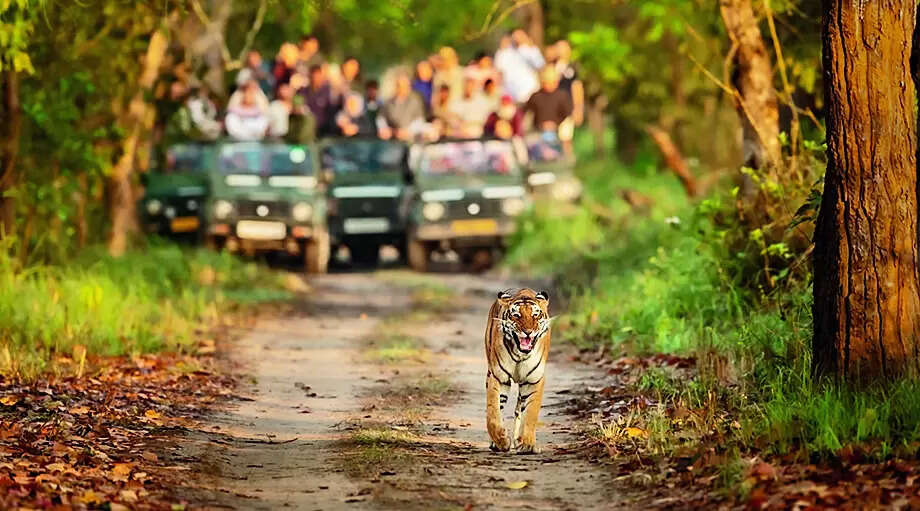
Supreme Court on Wednesday allowed establishment of ‘tiger safaris‘ in buffer or peripheral zones of tiger reserves, but prohibited the display of healthy big cats from the habitat along with those bred in a zoo.
Ordering scrupulous implementation of National Tiger Conservation Authority‘s 2016 guidelines, a bench of Justices B R Gavai, P K Mishra and Sandeep Mehta said, “No tiger shall be obtained from a zoo (for tiger safari). Wild tigers which are from the same landscape as that of the area in which the safari is set up should be kept there and would include injured ones after their recovery, orphaned tiger cubs which are unfit for re-wilding and conflict tigers. No healthy tiger or other species of animal should be sourced from the wild to be kept in safaris.”
The bench expressed serious concern over mushrooming of resorts around tiger reserves, which are mostly used as destination wedding venues and play loud music causing damage to wildlife and the ecosystem and said, “Even in buffer or peripheral areas, though a lesser degree of habitat protection than the core area is to be provided, provisions are required to be made to ensure the integrity of the critical tiger habitat with adequate dispersal for tiger species.” Justice Gavai, writing the judgment, quoted Mahabharat to say, “The tiger perishes without the forest and the forest perishes without its tigers. Therefore, the tiger should stand guard over the forest and the forest should protect all its tigers.”The bench approved NTCA guidelines and said, “Tiger safaris may be established in buffer or fringe areas of tiger reserves which experience immense tourist influx in the core/critical tiger habitat for viewing tigers.”
It ordered the ministry of environment, forest & climate change to appoint a high-powered committee, which could co-opt experts in the field, to study this problem and submit its preliminary findings within three months on restrictions and regulations on resorts around tiger reserves.
One of the tasks of the committee is to examine what type of activities should be permitted and prohibited in the buffer zone and fringe areas of tiger reserves. “While doing so, if tourism is to be promoted, it must be eco-tourism. The type of construction that should be permissible in such resorts would be in tune with the natural environment,” it said.
The committee will also examine “the number and type of resorts that should be permitted within the close proximity of the protected areas. What restriction should be imposed on such resorts so that they are managed in tune with the object of protecting and maintaining the ecosystem rather than causing obstruction in the same”.
“There is a mushrooming growth of resorts around various tiger reserves throughout the country which are now being used as marriage destinations. It is brought to our notice that in the said resorts, music is played at a very loud volume causing disturbance to the habitat of the forests,” the bench said.
“Undisputedly, mushrooming growth of resorts within the close proximity of the protected areas and uncontrolled activities therein including sound pollution are capable of causing great harm to the ecosystem,” the SC said, noticing that mushrooming of resorts around Corbett Tiger Reserve and Ramnagar were hindering free movement of animals, including tigers and elephants.




